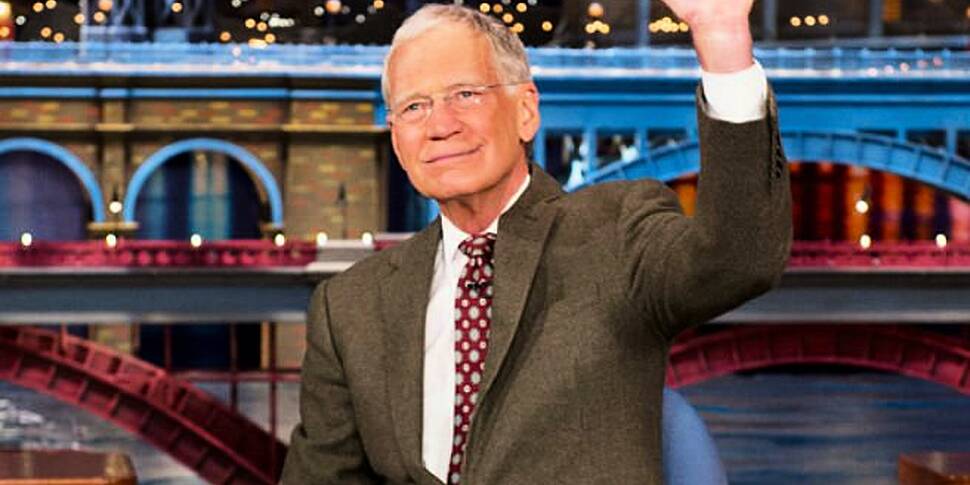On Wednesday night David Letterman finished a 33 year run on late night TV in the US, bringing to a close an era in broadcasting and one of the most enduring careers in American TV comedy.
With a wave of tributes paid in the build up, during the final show, and in the aftermath, it was only right that The Sunday Show offer him the crowning achievement - a spot in The Cultural Toolbox. So this week John and Shane sat down to look back at a career that helped reinvent the chat show and yet now seems something of a throwback.
Letterman's career was built on his irreverent, self-deprecating style. He treated the biggest names with none of the reverence they could count on in more fawning interview environments. Letterman was never a man for sentiment for sentiment's sake, and although he once brought out the team of doctors who carried out his life saving heart surgery, he was never going to bow at the feet of Hollywood stars.
His final show, in a run of more than 6000 on late night TV - was true to form. His own goodbye showed the same disdain for faux-sentimentality that the career thrived on. It was a star studded farewell show that saw the man himself remain, on the surface, in his typical nightly mode while the world of entertainment – and particularly comedy – gushed around him. When he walked out his introduction to the show was delayed by a two minute standing ovation. Such was the time spent paying tribute the show ran 17 minutes over its usual hour.
Sticking to the show's format of a nightly Top 10, a series of stars of comedy offered: "Top ten things I've always to say to Dave"
The Foo Fighters closed out the show with a performance of Everlong (‘my favourite band playing my favourite song, Letterman said) as a montage of his best moments played out and 13.8 million Americans tuned in - Letterman's highest ratings since 1994.
Blazing a trail and trailing Leno
Letterman's career started on NBC in 1982, before he moved to CBS’s Late Show in 1993 following the NBC decision to give the ‘Tonight show' hosting gig to Jay Leno, thus denying Letterman the chance to follow in the footsteps of a previous legend of the form, Johnny Carson. It was something which he never forgave and even referenced in his opening monologue on Wednesday night, saying 'It's beginning to look like I won't get the Tonight Show!" Unfortunately for Letterman he would spend most of his career playing second fiddle to Leno. (The Washington Post published 'Why David Letterman is among television history's biggest losers' this week).
Despite trailing Leno, over his career Letterman transformed the late night format, adding sketches and bizarre set pieces to the well worn guest and presenter sit down chat format. He made 'Stupid Pet Tricks' a household name.
But Letterman never played to an image of what he., or his show, should be. Howard Stern speculated this week that not being the market leader offered a certain freedom.
“It freed him in some way,” Mr. Stern told the New York Times.
“He probably could have dumbed it down and done a long meaningless monologue that would have made for better ratings, but he stayed true to himself. That takes an unusual strength.”
A throwback
While many of the late night hosts now – Jimmy Kimmel, Jimmy Fallon and even the newest face on the block, James Corden, have moulded their shows to appeal to younger audiences, with material and set pieces suited to sharing online, Letterman was something of a throwback, the last of the old guard of the true TV talk show host that.
The New York Times said his departure "is something of an end of an era for late night television".
His most memorable moments
Asking Paris Hilton what it's like in prison
His monologue after 9/11 - he was the first late-night host to speak to America since the attacks on the World Trade Centre
Admitting to having sex with female staff members on his show, in 2009
CNN’s pick of the top 10 Letterman Late Night moments









